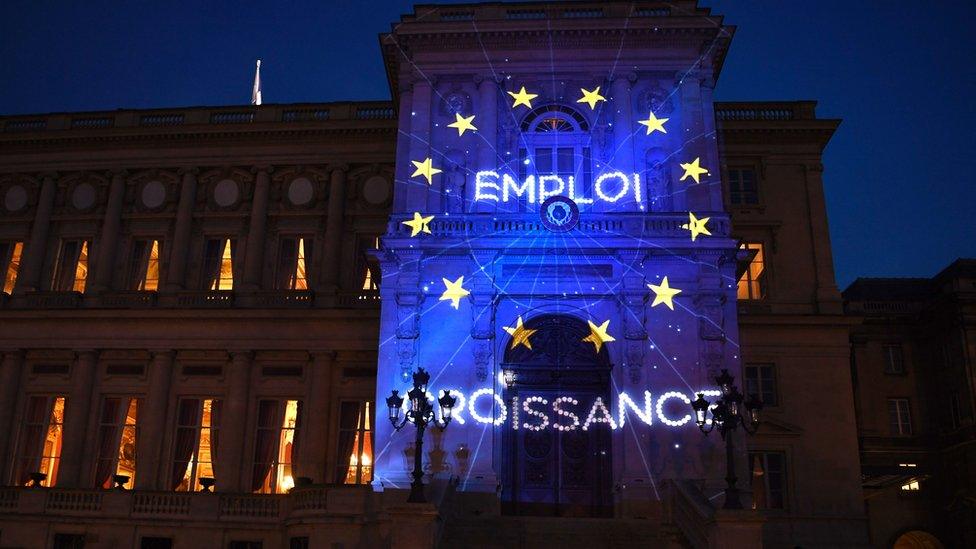French election: 'Unworthy' debate was still great viewing
- Published
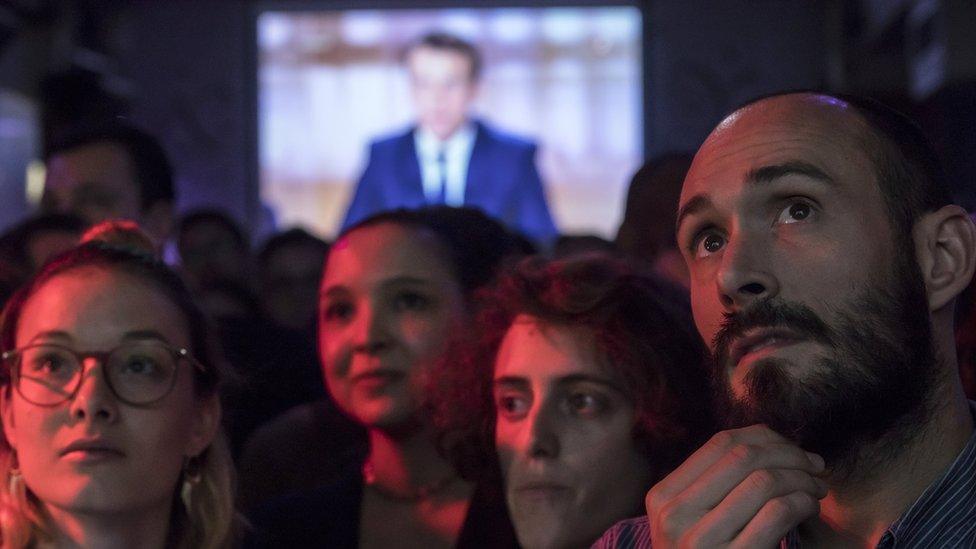
Supporters of Mr Macron watch the debate in a Paris bar
After the debate was over, some of the French media commentariat was saying it had been a disgrace.
Nothing had been elucidated. It was all mud-slinging. It was unworthy of a presidential election.
Maybe. But it didn't half make for riveting viewing. And at the end of the day, the debate did its job.
For the millions sitting through those two hours of insults, interruptions and (just occasionally) ideas, the differences between Marine Le Pen and Emmanuel Macron could hardly have been made any plainer.
The National Front leader set the tone with her opening remarks, which were clearly intended to cause personal hurt. Macron's smile had become a grimace, she said. The mask had fallen - behind the personable front lay the coldness of a banker.
Insults like that can only have been intended to rattle her adversary, to provoke him into saying something he would regret. And that was her tactic throughout: constantly needling Emmanuel Macron with jibes and vaguely-worded accusations.
There had been a big argument in advance about whether the producers of the debate would be allowed to use cutaways. These are images of the person who is not talking, when he or she reacts to the one who is.
Finally it was agreed that they could be broadcast - and thus we were able to watch Marine Le Pen doing something unusual. Throughout much of the debate she was smiling, sometimes even chuckling.
It seemed to be part of a rehearsed psychological ploy to unnerve her opponent, by appearing to find his answers so ludicrous as to be amusing.
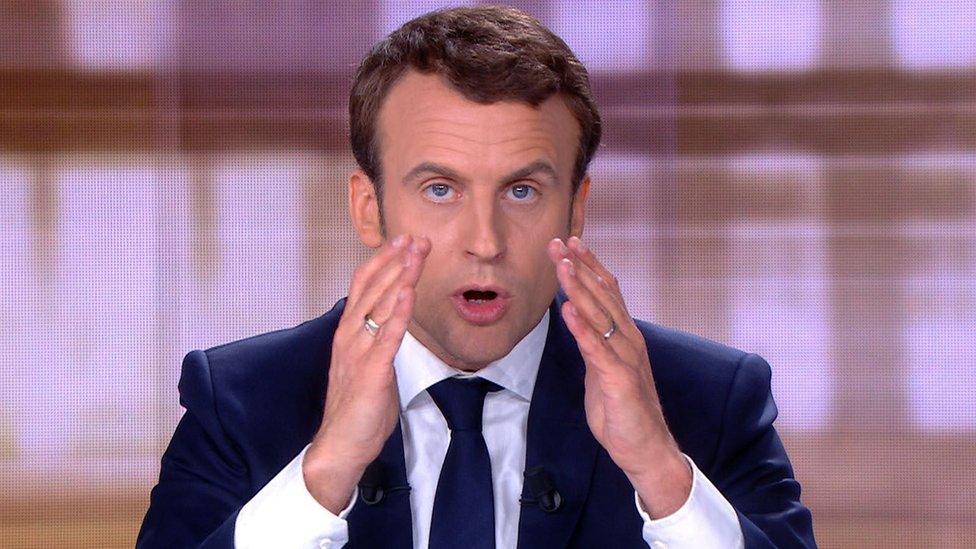
Showing candidates' reactions was a sticking point before the event
Except none of this tactic worked. Emmanuel Macron did not rise to the bait. Say what you will of him, Macron is an extraordinarily composed and accomplished performer. Throughout the debate he remained master of himself and his argument.
At only one point did she score. In the section on terrorism, she launched a attack on Macron's supposed feebleness in face of the jihadist threat, and explained that she would make France safer by expelling foreign suspects.
Macron responded with a long-winded explanation of how so many terrorists were in fact French, and how therefore France needed to examine its own conscience for letting that happen.
The argument misfired badly because it made it look as if Macron blamed France as much as the terrorists.
But for the rest, it was Marine Le Pen who betrayed weakness and confusion on a range of issues - especially economic. On the question of leaving the euro, far from clearing up the uncertainty about what she actually wants, she made matters worse by exposing her ignorance of the old European Currency Unit.
She was constantly playing with documents in front of her, searching for points and remarks to quote back at him. But it made her look unsure of her brief, and too often her attacks were reduced to the same old slogans.
Macron, by contrast, appeared comfortable and spontaneous.
These face-to-face debates are a traditional part of the election process, and for 40 years the French have tuned in to see which candidate is more likely to faire président.
They want to know who has the look, who has the feel of a head of state.
Emmanuel Macron is an unknown quantity. Many loathe his ideas. Many fear his inexperience.
But last night - against Marine le Pen - there was little doubt who was the more presidentiable.
- Published3 May 2017

- Published2 May 2017
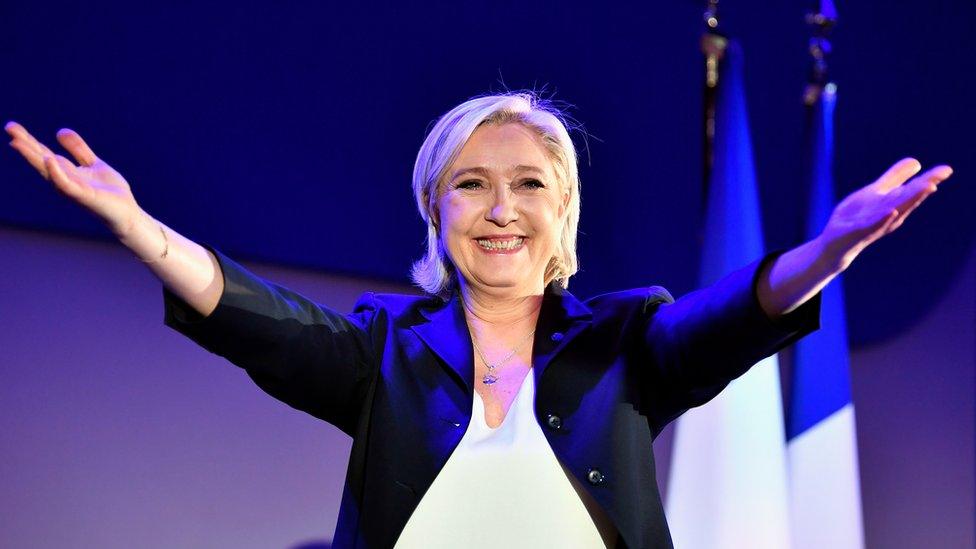
- Published2 May 2017
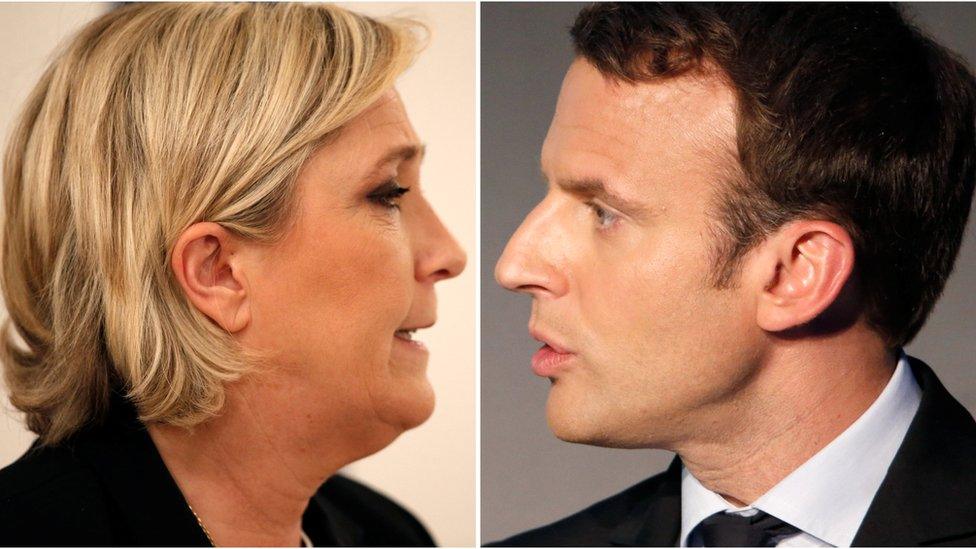
- Published3 May 2017
